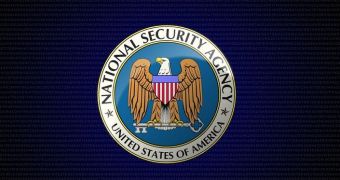The surveillance activities the United States is engaging in have a grave effect on journalism, law and democracy as a whole.
According to a report from the Human Rights Watch and the American Civil Liberties Union (ACLU), surveillance is undermining media freedom, the right to counsel and is obstructing people’s ability to hold their government accountable.
The report, titled “With Liberty to Monitor All: How Large-Scale US Surveillance Is Harming Journalism, Law, and American Democracy,” looks at difficulties some professions face due to all the spying the NSA and other agencies engage in.
It is based on interviews with dozens of journalists, lawyers and even US government officials who all agree that things are increasingly more difficult following the revelation that their every move may be under watch.
Source anonymity and professional confidentiality mean absolutely nothing if Big Brother is snooping in, listening to every word and tracking all communications. Basically, journalists and lawyers have been pushed to adopt elaborate steps to keep communications, sources and other confidential information safe.
From using encrypted services to talk to their sources, to implementing completely anonymous and untraceable ways to receive tips about the next big thing, journalists have done it all. While the White House may be criticizing anonymous sourcing, the truth remains that the method is necessary not only to get scoops, but also to protect people’s lives.
Source protection is, after all, one of the top items on the list of ethics in journalism, and many have chosen to go to prison rather than divulge the names of those responsible for information leaks.
The report from the Human Rights Watch and ACLU shows that surveillance has undermined press freedom, the public’s right to information, the right to counsel and basically all human rights that are essential to a healthy democracy.
“Journalists told us that officials are substantially less willing to be in contact with the press, even with regard to unclassified matters or personal opinions, than they were even a few years ago. This can create serious challenges for journalists who cover national security, intelligence and law enforcement, and who often operate in a gray area—working with information that is sensitive but not necessarily classified, and speaking with multiple sources to confirm and piece together the details of a story that may be of tremendous public interest,” reads the report.
“As with the journalists, lawyers increasingly feel under pressure to adopt strategies to avoid leaving a digital trail that could be monitored; some use burner phones, others seek out technologies they feel may be more secure, and others reported traveling more for in-person meetings,” the file reads on, discussing the hardships lawyers have to go through.
More than one year after the NSA files made their way online, lawmakers are still dragging their feet to put a stop to the undiscriminating surveillance performed by the intelligence community.

 14 DAY TRIAL //
14 DAY TRIAL // 